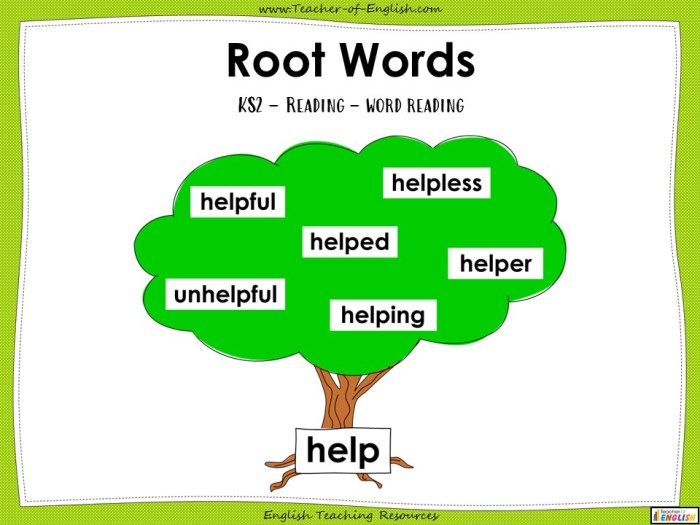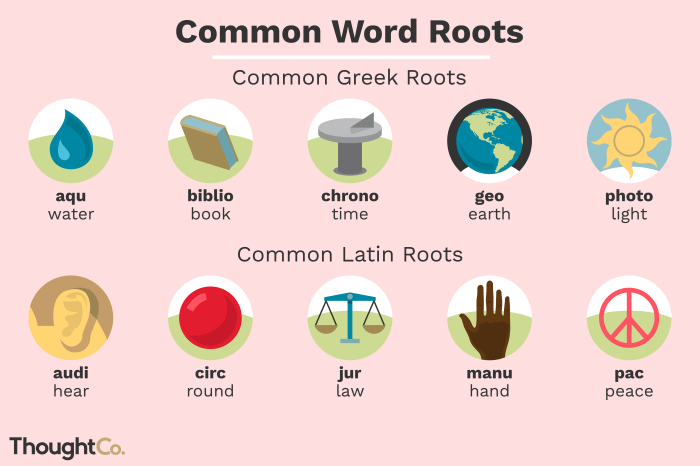Words with the root word nov – Words with the root “nov” are linguistic treasures that have traversed time and cultures, carrying with them a wealth of meanings and nuances. From their historical origins to their contemporary usage, these words offer a fascinating glimpse into the evolution of language and the human experience.
Etymology, the study of word origins, reveals that “nov” has deep roots in Indo-European languages, symbolizing concepts of newness, innovation, and renewal.
Etymology and Origin

The root “nov” originates from the Proto-Indo-European (PIE) root -new-, meaning “new” or “recent.”
This root has spread across numerous languages, including Latin, Greek, and Sanskrit, and has given rise to a wide range of words related to the concept of newness or innovation.
Latin
- Novus: “new”
- Novare: “to renew”
- Novitas: “newness”
Greek
- Neos: “new”
- Nea: “new (feminine)”
- Neoteros: “younger”
Sanskrit
- Nava: “new”
- Navya: “modern”
- Navikarana: “renewal”
Semantic Meaning and Usage

The root “nov” originates from the Latin word “novus,” meaning “new.” Words with this root share the core semantic meaning of “newness,” “freshness,” or “innovation.”
Words with the root “nov” are commonly used in contexts related to:
- Beginning or starting something new
- Introducing novel ideas or concepts
- Describing something that is unique or unprecedented
- Expressing a sense of renewal or freshness
Usage in Different Contexts
Here are some specific examples of how words with the root “nov” are used in different contexts:
- In literature:Novels are long, fictional stories that introduce new characters, settings, and plots.
- In science:Innovations are new inventions or discoveries that advance knowledge or technology.
- In business:Startups are new companies that introduce novel products or services to the market.
- In personal development:Renewal refers to the process of refreshing or revitalizing oneself, often through new experiences or perspectives.
Grammatical and Syntactic Properties

Words with the root “nov” exhibit a range of grammatical categories and syntactic functions. They can appear as nouns, adjectives, verbs, or adverbs, each with its own unique morphological structure and derivational patterns.
Words with the root word nov are commonly used to express newness, such as in the word “novel.” Similarly, the concept of weeping, which involves the release of new tears, is related to the root word nov. This is evident in the term ” weep screed for stone veneer ,” which refers to a material used to control water flow and prevent weeping, further emphasizing the connection between nov and the idea of newness.
As nouns, words with the root “nov” typically refer to something new or novel. For example, the noun “novelty” refers to something new or unusual, while the noun “innovation” refers to a new idea or method.
Morphological Structure and Derivational Patterns
Words with the root “nov” can be derived through various morphological processes, including affixation and compounding. For example, the noun “novelty” is derived from the adjective “novel” by adding the suffix “-ty.” Similarly, the adjective “innovative” is derived from the noun “innovation” by adding the suffix “-ive.”
In addition to affixation, words with the root “nov” can also be formed through compounding. For example, the noun “newcomer” is a compound of the adjective “new” and the noun “comer.”
Syntactic Functions
In terms of syntactic functions, words with the root “nov” can serve as various sentence elements. As nouns, they can function as subjects, objects, or complements. For example, in the sentence “The novelty of the idea surprised me,” the noun “novelty” functions as the subject of the sentence.
As adjectives, words with the root “nov” can modify nouns or pronouns. For example, in the sentence “The innovative design impressed the judges,” the adjective “innovative” modifies the noun “design.”
Lexical Relationships and Semantic Fields: Words With The Root Word Nov

Words with the root “nov” share a core meaning related to newness, innovation, or beginnings. They often appear in lexical sets that explore concepts of creation, progress, and change.
These words are commonly found in semantic fields associated with:
- Innovation and Technology:Words like “novelty,” “innovate,” and “neologism” are used to describe new ideas, products, and inventions.
- Literature and Language:“Novel,” “novice,” and “novella” refer to literary genres, authors, and works that introduce fresh perspectives or break from established norms.
- Time and Change:“Nova” and “novitiate” denote celestial events and periods of initiation, respectively, highlighting the idea of new beginnings.
Additionally, words with the root “nov” participate in collocations and idioms that reinforce their semantic relationships. For example:
- “A novel idea” refers to a unique or original concept.
- “A novice in the field” indicates someone new to a particular area of knowledge or expertise.
- “The nova of the night sky” describes a sudden burst of light from a star, symbolizing a new chapter or event.
Cultural and Historical Significance
Words with the root “nov” hold significant cultural and historical weight, reflecting the values, beliefs, and experiences of various societies. These words have played a pivotal role in shaping literature, art, and other cultural expressions, leaving an enduring legacy across different eras.
The Concept of “New” in Different Cultures
The concept of “new” has been central to human civilization, with words derived from “nov” capturing the essence of novelty, innovation, and change. In ancient Greek culture, “neos” symbolized the arrival of something fresh and untainted, while in Roman society, “novus” represented the unknown and the potential for progress.
In many cultures, words like “novel” and “novice” have carried connotations of both excitement and trepidation, reflecting the transformative power of the new.
Nov and the Exploration of the Unknown, Words with the root word nov
Words with the root “nov” have been closely associated with the exploration of the unknown. In the 15th century, the Portuguese explorer Vasco da Gama embarked on a groundbreaking voyage to India, naming his ship “São Gabriel” after the angel Gabriel, who brought news of the birth of Christ.
This ship’s name symbolized the novelty and the potentially transformative nature of this expedition.
The Role of Nov in Literature and Art
Words with the root “nov” have been instrumental in shaping literary and artistic expressions. The novel, as a literary genre, emerged in the 18th century, offering a new form of storytelling that explored the complexities of human experience. In art, the concept of “novism” emerged in the early 20th century, emphasizing the rejection of traditional forms and the embrace of experimentation and innovation.
Nov and the Language of Innovation
In modern times, words with the root “nov” have become synonymous with innovation and technological advancement. Terms like “novelty,” “innovation,” and “startup” have become central to the language of entrepreneurship and technological progress. These words reflect the importance of embracing the new and fostering a culture of creativity and disruption.
Pedagogical Applications

Teaching words with the root “nov” offers valuable opportunities for students to expand their vocabulary and deepen their understanding of word relationships. By exploring the meanings, usages, and connections of these words, students can develop a stronger grasp of the language and its nuances.
Activities and Exercises
To enhance students’ comprehension of words with the root “nov,” educators can incorporate various activities and exercises into their lessons. These may include:
Word Mapping
Creating a visual representation of the root word “nov” and its derivatives, illustrating the semantic relationships between them.
Semantic Analysis
Analyzing the meanings of words with the root “nov” in different contexts to identify shades of meaning and connotations.
Vocabulary Building Games
Engaging students in games like word puzzles, charades, or Pictionary to reinforce the vocabulary related to “nov.”
Root Word Detective
Presenting students with novel words containing the root “nov” and challenging them to identify its meaning and relationship to other words they know.
Commonly Asked Questions
What is the core semantic meaning of words with the root “nov”?
The core semantic meaning of “nov” is “new” or “novel,” referring to something that is fresh, unprecedented, or recently introduced.
How are words with the root “nov” used in different contexts?
Words with the root “nov” are used in a wide range of contexts, including literature, science, technology, and everyday speech. They can convey ideas of innovation, change, beginnings, and the unknown.
What are some common examples of words with the root “nov”?
Some common examples include “novel,” “novice,” “innovate,” “renovate,” and “nostalgia.